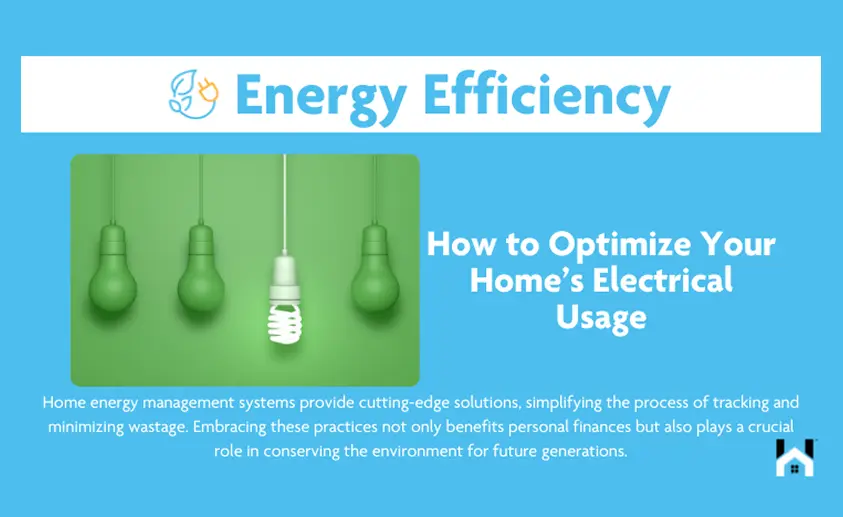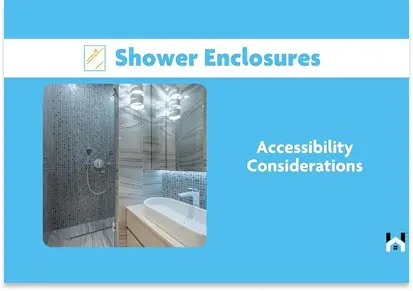Energy Efficiency: How to Optimize Your Home’s Electrical Usage

Energy efficiency is more than just a trendy term; it plays a vital role in cutting costs and lessening environmental impact. In this discussion, we will delve into the definition of energy efficiency, the advantages of enhancing it, and methods to evaluate and enhance your household's energy consumption.
Uncover strategies and recommendations for conserving energy and promoting sustainability in your everyday routines. Come along with us on this expedition towards a more effective and environmentally friendly living space!
Understanding Energy Efficiency
Understanding energy efficiency is essential for establishing a sustainable and environmentally friendly home environment. By optimizing electrical usage, individuals can decrease power consumption and save on electricity bills while also contributing to a cleaner planet.
Incorporating energy-saving techniques, such as utilizing energy-efficient appliances, ensuring proper insulation, and integrating smart home technology, can significantly reduce an individual's carbon footprint. Simple adjustments like transitioning to LED light bulbs and regulating thermostats can have a substantial impact on energy conservation.
Home energy management systems provide cutting-edge solutions by monitoring and managing energy usage, simplifying the process of tracking and minimizing wastage. Embracing these practices not only benefits personal finances but also plays a crucial role in conserving the environment for future generations.
What is Energy Efficiency?
Energy efficiency involves the efficient use of energy to minimize waste and maximize performance. Within a smart home environment, energy-efficient appliances, lighting, and HVAC systems are crucial in reducing overall energy consumption.
Smart homes utilize the latest advancements in home automation to seamlessly incorporate energy-efficient practices into everyday life. By integrating smart sensors and programmable settings, these homes can adapt temperature, lighting, and appliance usage according to real-time requirements, leading to significant energy conservation. Investing in energy-efficient solutions not only aids in conservation efforts but also results in lower utility bills, making it a sensible and environmentally conscious choice for homeowners seeking to improve their living spaces.
Benefits of Improving Energy Efficiency
Enhancing energy efficiency not only results in cost savings on utility bills but also encourages environmentally conscious living through the adoption of renewable energy sources such as solar panels and energy-efficient products.
By making investments in energy-efficient upgrades for their homes, individuals can significantly diminish their carbon footprint and contribute to a more sustainable environment.
One of the primary benefits of integrating solar panels is the capacity to utilize renewable energy from the sun, which not only decreases dependence on traditional fossil fuels but also presents a clean and sustainable source of power. Energy-efficient appliances and lighting fixtures aid in reducing electricity consumption, leading to prolonged savings on utility bills while simultaneously positively impacting the environment.
Saving Money and Reducing Environmental Impact
Improving energy efficiency not only results in significant cost savings but also helps reduce the environmental impact. By incorporating energy management strategies, conservation techniques, and energy-saving tips, homeowners can effectively lower their energy bills and carbon footprint.
Enhancing energy efficiency offers benefits beyond financial savings, as it also contributes positively to the environment. By implementing practices that reduce energy consumption at home, such as transitioning to energy-efficient appliances, optimizing heating and cooling systems, sealing drafts, and utilizing natural light whenever possible, individuals can make a tangible difference. These measures not only lead to long-term cost savings but also align with environmentally conscious values, promoting a more sustainable lifestyle.
Assessing Your Home's Energy Usage
Conducting an energy audit for your home is the initial step in pinpointing areas that can be improved. By following energy-saving tips and embracing environmentally-friendly habits, homeowners can effectively reduce their overall energy usage.
This practice not only aids in enhancing the sustainability of your home but also leads to decreased utility costs. Simple adjustments such as transitioning to LED light bulbs, utilizing programmable thermostats, and sealing any drafts around doors and windows can have a notable impact. Additionally, investing in energy-efficient appliances and ensuring proper upkeep of HVAC systems can further boost your home's energy efficiency.
Through being conscious of your energy usage and making informed decisions, you can establish a more <b>eco-friendly living environment.
Identifying Areas for Improvement
Improving energy efficiency involves several steps, such as enhancing insulation, upgrading windows, adjusting thermostat settings, and investing in energy-efficient upgrades. These enhancements help reduce energy wastage and improve the overall comfort within a home.
Enhancing insulation plays a crucial role in boosting energy efficiency at home. By adding insulation to attics, walls, and floors, it minimizes heat loss during colder periods. Upgrading to energy-efficient windows with double or triple panes can also notably decrease heat transfer, maintaining stable indoor temperatures. Optimizing thermostat settings with programmable or smart thermostats enables better control over heating and cooling systems, resulting in lower energy consumption. Additionally, investing in energy-efficient upgrades like LED lighting or appliances further contributes to enhancing the overall energy efficiency of a home.
Ways to Optimize Your Home's Electrical Usage
Improving the efficiency of one's home electrical consumption can be achieved through various approaches, such as weather-stripping, integrating a home energy monitoring system, transitioning to energy-efficient lighting options, and adopting an eco-friendly home philosophy. These measures play a crucial role in reducing energy wastage and fostering sustainable living.
Weather-stripping serves as a straightforward yet impactful method for sealing gaps around windows and doors, thereby preventing air leakage and maintaining proper insulation within the home. Investing in a home energy monitoring system enables individuals to monitor their electricity usage in real-time, identifying areas where enhancements can be made.
In terms of lighting solutions, contemplating a shift towards LED bulbs or compact fluorescent lamps is advisable, as these options consume notably less energy compared to traditional incandescent bulbs. Embracing eco-friendly practices like recycling, composting, and utilizing energy-efficient appliances can further augment endeavors towards cultivating a more sustainable lifestyle.
Tips and Techniques for Saving Energy
Achieving energy savings at home involves utilizing various tools and strategies, such as a programmable thermostat, smart plugs for efficient device management, energy-efficient windows, and upgrading to energy-efficient appliances. These methods are effective in reducing energy costs and improving overall energy efficiency.
A programmable thermostat allows for personalized control over home temperature settings according to one's schedule, preventing energy wastage when the house is unoccupied. Smart plugs provide the convenience of remotely managing devices, enabling users to power them off when not in use to prevent unnecessary energy consumption. Energy-efficient windows play a crucial role in regulating indoor temperatures, reducing the need for constant heating and cooling.
Furthermore, upgrading to energy-efficient appliances like refrigerators and washing machines can lead to a significant decrease in electricity usage, resulting in notable energy savings. These practices not only benefit the environment but also contribute to cost-effective energy management in households.
Investing in Energy Efficient Upgrades
Investing in energy-efficient upgrades like HVAC systems, insulation, and other solutions can result in decreased energy expenses and improved comfort at home. By choosing energy-efficient options, homeowners can experience lasting cost savings and create a more sustainable living space.
When you upgrade your HVAC system to a more energy-efficient model, you can significantly lower your monthly utility bills while achieving a consistent and comfortable indoor atmosphere. Enhanced insulation, whether through additional insulation in existing areas or selecting superior quality materials, helps regulate temperature, ensuring warmth in winter and coolness in summer.
These proactive steps not only positively impact your finances but also lessen your carbon footprint, contributing to a greener and healthier planet.
Cost-effective Upgrades for Long-term Savings
Opting for cost-effective upgrades that prioritize sustainable home design, energy-efficient measures, and energy-saving devices, along with considering the associated benefits of energy efficiency, can result in substantial long-term savings and a more environmentally friendly living space.
Implementing enhancements such as the installation of programmable thermostats, LED lighting, and energy-efficient appliances not only cuts down on utility expenses but also contributes to a greener household. These improvements offer a twofold advantage by reducing energy usage and minimizing the carbon footprint.
By embracing sustainable living practices within your home, you can cultivate a healthier indoor environment, elevate overall comfort levels, and enhance property value over time. Making mindful decisions towards energy efficiency not only saves on costs but also promotes a sustainable lifestyle.
Maintaining Energy Efficiency
To maintain energy efficiency in homes, it is important for homeowners to regularly maintain energy-efficient upgrades and systems, implement energy conservation ideas, and actively engage in energy efficiency initiatives. These practices are essential to ensure sustainable energy usage and provide long-term benefits to homeowners.
By consistently monitoring energy consumption patterns, homeowners can pinpoint areas where energy is being wasted and make targeted improvements. Simple yet effective steps such as installing programmable thermostats, using energy-efficient appliances, and sealing drafts around windows and doors can significantly enhance energy efficiency in a home.
Enrolling in home energy management programs and seeking guidance from energy experts can offer valuable insights on how to reduce energy consumption and lower utility costs. These resources can provide homeowners with the necessary knowledge and support to make informed decisions about improving energy efficiency in their homes.<
Habits and Practices for Sustainable Energy Usage
Establishing routines and strategies for sustainable energy consumption involves closely monitoring energy usage, utilizing energy-efficient appliances, embracing energy-saving practices, and integrating energy-efficient devices. These behaviors play a crucial role in minimizing energy wastage and fostering environmentally friendly lifestyles.
Keeping a close eye on energy consumption is pivotal in pinpointing areas of excessive energy usage and identifying opportunities for enhancement. By conscientiously observing energy consumption patterns, individuals can make well-informed choices on how to diminish their carbon footprint. Incorporating energy-efficient appliances like LED light bulbs, ENERGY STAR-certified electronics, and energy-efficient HVAC systems can significantly reduce energy consumption. Additionally, integrating smart thermostats and power strips equipped with energy-conserving features further amplifies the endeavors toward energy preservation.

Need help with
your project?
Whether you’re planning a project or just trying to remember when to clean your gutters, we’ve got your back (and your inbox).



